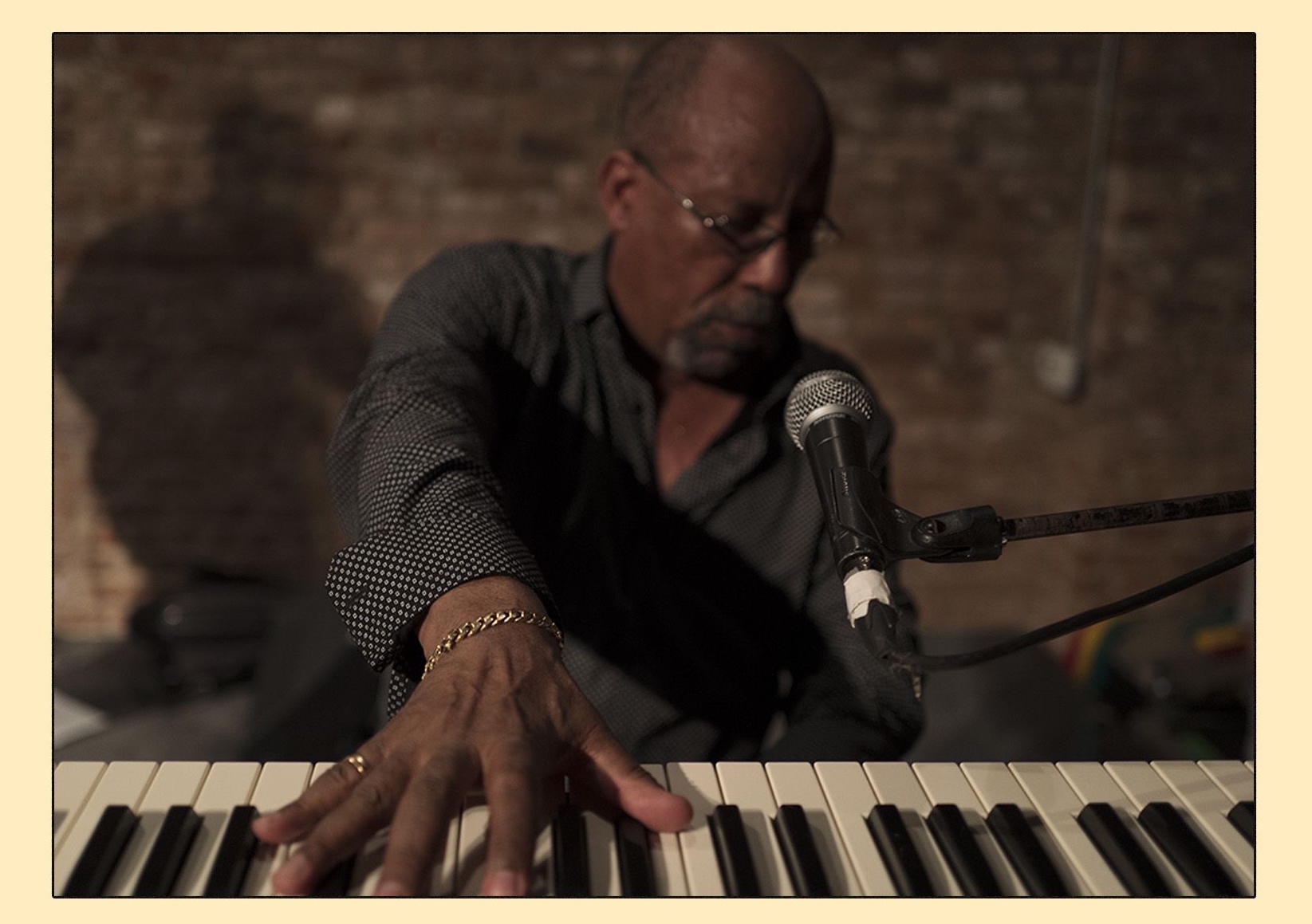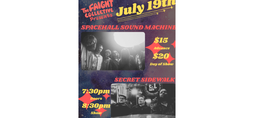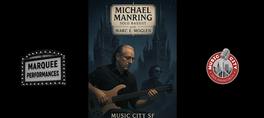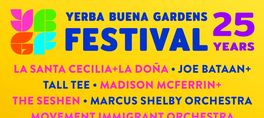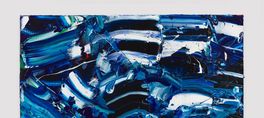Master accordionist and veteran bandleader, arranger and keyboardist, originally from Ethiopia.
~~~~~~~~~~
Hailu Mergia's new album Yene Mircha ("my choice" in Amharic) departs from the fiery acoustic trio jazz of 2018's Lala Belu, his first recording in over 15 years. That album clarified Mergia as a living legend making vital contemporary music. It was hailed by international press, including the New York Times, BBC, and Pitchfork, which called his music "triumphantly in the present."
Mergia is in no way stuck in nostalgia for the "golden age" of 1970s Ethiopian music.
Yene Mircha enters a new field of sound with expanded instrumentation and a focus on Mergia's own compositions and arrangements. His DC-based trio is the highly stable nucleus. They've burned a path across three continents playing this hard-to-categorize approach to jazz, funk, and a rainbow of Ethipoian styles at more than 40 shows last year.
Mergia often says there should be many kinds of Ethiopian music. His philosophy is evident on Yene Mircha as it floats along a spectrum of sound and genre. He has made over a dozen albums since the early '70s, each a refraction of the one before it, never doing quite the same thing twice.
"You can do anything with Ethiopian music, it shouldn't be only this sound or that sound. That's why I called the album My Choice. This is the sound I choose."
Mergia has retained relevance all these years by changing his sound with the times, he says. "I believe in sound changing. It's good for listeners when they hear a different sound every time they listen to me. Maybe next album I will do something else completely."
The changes Mergia envisions on Yene Mircha are immediately apparent. 2018's Lala Belu featured a round upright acoustic bass sound and warm, heavy drums while the new album is anchored by Alemseged Kebede's nimble electric bass and Ken Joseph's kyperkinetic, bright drum feel.
Mergia brought in an ancient instrument to keep things contemporary. Master mesenqo player Setegn Atenaw joined on "Semen Ena Debub" because Mergia was inspired by the cherished tradition stringed instrument's resurgence after disappearing from pop music in the '70s. "Tigrinya, pop music, traditional music all use it now but in the '60s and '70s mesenqo was not very popular," according to Mergia. Juxtaposed with the extured, resonant timbres of the mesenqo and Mergia's trademark accordion are electric guitar and synthesizer.
At the same time there are vocals on Yene Mircha--something rare for the artist who's known back home as a pillar of instrumental music. For "Abichu Nega Nega" and "Shemendefer," celebrated Ethiopian traditional vocalist Tsehay Kassa sings alongside Mergia, who adds some studio techniques to make it sound like a small choir. The horn section on "Yene Mircha" is fortified by a key member of Mergia's former Walias Band, Moges Habte on saxophone.
Mergia has a process for his creative flow: "I was thinking about the trio recording first, which took two days. I knew I would have more ideas about where to go from there.
First, we did acoustic piano bass and drums, no keys, nothing. I listened, then I got more ideas about what to change and where I could add sounds. We built the sound piece by piece. There are a variety of things going on there. I always think of the current day's recording when I arrive at the studio."
After he emigrated from Ethiopia and built a life in Washington, D.C. around 1981--where he worked as an airport taxi driver until recently--keyboard and accordion player Hailu Mergia's career followed a humble trajectory. He made a few recordings in America and kept making music on his own and with friends. But after the early 80's, his gigs in the U.S. mostly dried up. Mergia recently charted a new path following a series of reissues of his classic works via Awesome Tapes From Africa. Mergia has crisscrossed Europe a dozen times in the years since playing all over North America including Radio City Music Hall and Montreal Jazz Festival.
show less
~~~~~~~~~~
Hailu Mergia's new album Yene Mircha ("my choice" in Amharic) departs from the fiery acoustic trio jazz of 2018's Lala Belu, his first recording in over 15 years. That album clarified Mergia as a living legend making vital contemporary music. It was hailed by international press, including the New York Times, BBC, and Pitchfork, which called his music "triumphantly in the present."
Mergia is in no way stuck in nostalgia for the "golden age" of 1970s Ethiopian music.
Yene Mircha enters a new field of sound with expanded instrumentation and a focus on Mergia's own compositions and arrangements. His DC-based trio is the highly stable nucleus. They've burned a path across three continents playing this hard-to-categorize approach to jazz, funk, and a rainbow of Ethipoian styles at more than 40 shows last year.
Mergia often says there should be many kinds of Ethiopian music. His philosophy is evident on Yene Mircha as it floats along a spectrum of sound and genre. He has made over a dozen albums since the early '70s, each a refraction of the one before it, never doing quite the same thing twice.
"You can do anything with Ethiopian music, it shouldn't be only this sound or that sound. That's why I called the album My Choice. This is the sound I choose."
Mergia has retained relevance all these years by changing his sound with the times, he says. "I believe in sound changing. It's good for listeners when they hear a different sound every time they listen to me. Maybe next album I will do something else completely."
The changes Mergia envisions on Yene Mircha are immediately apparent. 2018's Lala Belu featured a round upright acoustic bass sound and warm, heavy drums while the new album is anchored by Alemseged Kebede's nimble electric bass and Ken Joseph's kyperkinetic, bright drum feel.
Mergia brought in an ancient instrument to keep things contemporary. Master mesenqo player Setegn Atenaw joined on "Semen Ena Debub" because Mergia was inspired by the cherished tradition stringed instrument's resurgence after disappearing from pop music in the '70s. "Tigrinya, pop music, traditional music all use it now but in the '60s and '70s mesenqo was not very popular," according to Mergia. Juxtaposed with the extured, resonant timbres of the mesenqo and Mergia's trademark accordion are electric guitar and synthesizer.
At the same time there are vocals on Yene Mircha--something rare for the artist who's known back home as a pillar of instrumental music. For "Abichu Nega Nega" and "Shemendefer," celebrated Ethiopian traditional vocalist Tsehay Kassa sings alongside Mergia, who adds some studio techniques to make it sound like a small choir. The horn section on "Yene Mircha" is fortified by a key member of Mergia's former Walias Band, Moges Habte on saxophone.
Mergia has a process for his creative flow: "I was thinking about the trio recording first, which took two days. I knew I would have more ideas about where to go from there.
First, we did acoustic piano bass and drums, no keys, nothing. I listened, then I got more ideas about what to change and where I could add sounds. We built the sound piece by piece. There are a variety of things going on there. I always think of the current day's recording when I arrive at the studio."
After he emigrated from Ethiopia and built a life in Washington, D.C. around 1981--where he worked as an airport taxi driver until recently--keyboard and accordion player Hailu Mergia's career followed a humble trajectory. He made a few recordings in America and kept making music on his own and with friends. But after the early 80's, his gigs in the U.S. mostly dried up. Mergia recently charted a new path following a series of reissues of his classic works via Awesome Tapes From Africa. Mergia has crisscrossed Europe a dozen times in the years since playing all over North America including Radio City Music Hall and Montreal Jazz Festival.
Master accordionist and veteran bandleader, arranger and keyboardist, originally from Ethiopia.
~~~~~~~~~~
Hailu Mergia's new album Yene Mircha ("my choice" in Amharic) departs from the fiery acoustic trio jazz of 2018's Lala Belu, his first recording in over 15 years. That album clarified Mergia as a living legend making vital contemporary music. It was hailed by international press, including the New York Times, BBC, and Pitchfork, which called his music "triumphantly in the present."
Mergia is in no way stuck in nostalgia for the "golden age" of 1970s Ethiopian music.
Yene Mircha enters a new field of sound with expanded instrumentation and a focus on Mergia's own compositions and arrangements. His DC-based trio is the highly stable nucleus. They've burned a path across three continents playing this hard-to-categorize approach to jazz, funk, and a rainbow of Ethipoian styles at more than 40 shows last year.
Mergia often says there should be many kinds of Ethiopian music. His philosophy is evident on Yene Mircha as it floats along a spectrum of sound and genre. He has made over a dozen albums since the early '70s, each a refraction of the one before it, never doing quite the same thing twice.
"You can do anything with Ethiopian music, it shouldn't be only this sound or that sound. That's why I called the album My Choice. This is the sound I choose."
Mergia has retained relevance all these years by changing his sound with the times, he says. "I believe in sound changing. It's good for listeners when they hear a different sound every time they listen to me. Maybe next album I will do something else completely."
The changes Mergia envisions on Yene Mircha are immediately apparent. 2018's Lala Belu featured a round upright acoustic bass sound and warm, heavy drums while the new album is anchored by Alemseged Kebede's nimble electric bass and Ken Joseph's kyperkinetic, bright drum feel.
Mergia brought in an ancient instrument to keep things contemporary. Master mesenqo player Setegn Atenaw joined on "Semen Ena Debub" because Mergia was inspired by the cherished tradition stringed instrument's resurgence after disappearing from pop music in the '70s. "Tigrinya, pop music, traditional music all use it now but in the '60s and '70s mesenqo was not very popular," according to Mergia. Juxtaposed with the extured, resonant timbres of the mesenqo and Mergia's trademark accordion are electric guitar and synthesizer.
At the same time there are vocals on Yene Mircha--something rare for the artist who's known back home as a pillar of instrumental music. For "Abichu Nega Nega" and "Shemendefer," celebrated Ethiopian traditional vocalist Tsehay Kassa sings alongside Mergia, who adds some studio techniques to make it sound like a small choir. The horn section on "Yene Mircha" is fortified by a key member of Mergia's former Walias Band, Moges Habte on saxophone.
Mergia has a process for his creative flow: "I was thinking about the trio recording first, which took two days. I knew I would have more ideas about where to go from there.
First, we did acoustic piano bass and drums, no keys, nothing. I listened, then I got more ideas about what to change and where I could add sounds. We built the sound piece by piece. There are a variety of things going on there. I always think of the current day's recording when I arrive at the studio."
After he emigrated from Ethiopia and built a life in Washington, D.C. around 1981--where he worked as an airport taxi driver until recently--keyboard and accordion player Hailu Mergia's career followed a humble trajectory. He made a few recordings in America and kept making music on his own and with friends. But after the early 80's, his gigs in the U.S. mostly dried up. Mergia recently charted a new path following a series of reissues of his classic works via Awesome Tapes From Africa. Mergia has crisscrossed Europe a dozen times in the years since playing all over North America including Radio City Music Hall and Montreal Jazz Festival.
read more
~~~~~~~~~~
Hailu Mergia's new album Yene Mircha ("my choice" in Amharic) departs from the fiery acoustic trio jazz of 2018's Lala Belu, his first recording in over 15 years. That album clarified Mergia as a living legend making vital contemporary music. It was hailed by international press, including the New York Times, BBC, and Pitchfork, which called his music "triumphantly in the present."
Mergia is in no way stuck in nostalgia for the "golden age" of 1970s Ethiopian music.
Yene Mircha enters a new field of sound with expanded instrumentation and a focus on Mergia's own compositions and arrangements. His DC-based trio is the highly stable nucleus. They've burned a path across three continents playing this hard-to-categorize approach to jazz, funk, and a rainbow of Ethipoian styles at more than 40 shows last year.
Mergia often says there should be many kinds of Ethiopian music. His philosophy is evident on Yene Mircha as it floats along a spectrum of sound and genre. He has made over a dozen albums since the early '70s, each a refraction of the one before it, never doing quite the same thing twice.
"You can do anything with Ethiopian music, it shouldn't be only this sound or that sound. That's why I called the album My Choice. This is the sound I choose."
Mergia has retained relevance all these years by changing his sound with the times, he says. "I believe in sound changing. It's good for listeners when they hear a different sound every time they listen to me. Maybe next album I will do something else completely."
The changes Mergia envisions on Yene Mircha are immediately apparent. 2018's Lala Belu featured a round upright acoustic bass sound and warm, heavy drums while the new album is anchored by Alemseged Kebede's nimble electric bass and Ken Joseph's kyperkinetic, bright drum feel.
Mergia brought in an ancient instrument to keep things contemporary. Master mesenqo player Setegn Atenaw joined on "Semen Ena Debub" because Mergia was inspired by the cherished tradition stringed instrument's resurgence after disappearing from pop music in the '70s. "Tigrinya, pop music, traditional music all use it now but in the '60s and '70s mesenqo was not very popular," according to Mergia. Juxtaposed with the extured, resonant timbres of the mesenqo and Mergia's trademark accordion are electric guitar and synthesizer.
At the same time there are vocals on Yene Mircha--something rare for the artist who's known back home as a pillar of instrumental music. For "Abichu Nega Nega" and "Shemendefer," celebrated Ethiopian traditional vocalist Tsehay Kassa sings alongside Mergia, who adds some studio techniques to make it sound like a small choir. The horn section on "Yene Mircha" is fortified by a key member of Mergia's former Walias Band, Moges Habte on saxophone.
Mergia has a process for his creative flow: "I was thinking about the trio recording first, which took two days. I knew I would have more ideas about where to go from there.
First, we did acoustic piano bass and drums, no keys, nothing. I listened, then I got more ideas about what to change and where I could add sounds. We built the sound piece by piece. There are a variety of things going on there. I always think of the current day's recording when I arrive at the studio."
After he emigrated from Ethiopia and built a life in Washington, D.C. around 1981--where he worked as an airport taxi driver until recently--keyboard and accordion player Hailu Mergia's career followed a humble trajectory. He made a few recordings in America and kept making music on his own and with friends. But after the early 80's, his gigs in the U.S. mostly dried up. Mergia recently charted a new path following a series of reissues of his classic works via Awesome Tapes From Africa. Mergia has crisscrossed Europe a dozen times in the years since playing all over North America including Radio City Music Hall and Montreal Jazz Festival.
show less
Date/Times:
Great American Music Hall (GAMH)
65 Upcoming Events
859 O'Farrell Street, San Francisco, CA 94109
The Best Events
Every Week in Your Inbox
From Our Sponsors
UPCOMING EVENTS
Great suggestion! We'll be in touch.
Event reviewed successfully.
